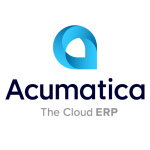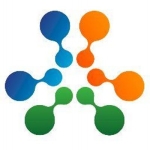We are using ERP Cloud for all our models. This consists of all our finances, HR, CRM, and supply chain management. I particularly work for the SCM segment.
The best part of Oracle ERP Cloud is that everything can be found in a single place. We as an organization, have our finances planned, HR Code uploaded, time and labor, payroll, supply chain, and CRM embedded in the single system.
The solution is ever-evolving. Each quarter, the product and the system have new purchases, dependencies, and improvements. There is a constant need to stay alert about new updates and change whatever is updated according to the requirements. Most of the changes are odd and require no need to access from the user side. It isn’t a disadvantage but a part of the evolution of the product.
The additional features depend on the case. There is, however, always room for improvement. Oracle can make the system more stable which includes some changes as some of the use cases were not available in Oracle's systems and the element’s value needed to be defined. This is one of the limitations of Oracle ERP Cloud.
I have worked with Oracle ERP Cloud for more than three years and my organization had Oracle ERP Cloud since the start.
The product is stable. However, some parts might be unstable, but it depends on each use.
The product support from Oracle is good, but it could be better. I sometimes expect a quick response when I have a client on the other end.
The initial setup is easy as it is provided by Oracle itself. The user configurations need to be done by technicians. The setup of the environment is easier as it is provided by Oracle.
The deployment requires our configuration. Therefore, based on the use case and configuration, the time isn’t fixed. In most of the projects, I have seen the same in six months. Moreover, Oracle ERP Cloud requires more configuration than deployment.
If we implement multiple modules, the number of people for deployment depends on the structure or work plan. For example, if you have to configure a complete system, and the time period is six months, it might require four to five people. But if the same is not defined, then it will take more people. It is challenging to decide how much human resources will be required. It depends on the case and the scenario.
In terms of maintenance, in the initial period, more effort and workforce are required. Once the system is stable, the number of people can be reduced. The maintenance depends on the structure of the organization. Some organizations have a central maintenance team that has four or five people who are responsible for maintaining or working on every model. Some organizations have specific teams working on specific modules. It majorly depends on the nature of the projects.
The price is average compared to other vendors. The licensing is on a yearly basis depending on the subscription pattern. There are no extra costs apart from licensing.
I recommend the product as it is good. If any organization is planning to use cloud-based ERP solutions, they can go for Oracle ERP Cloud as everything is in one place. I would rate the product an eight out of ten.















